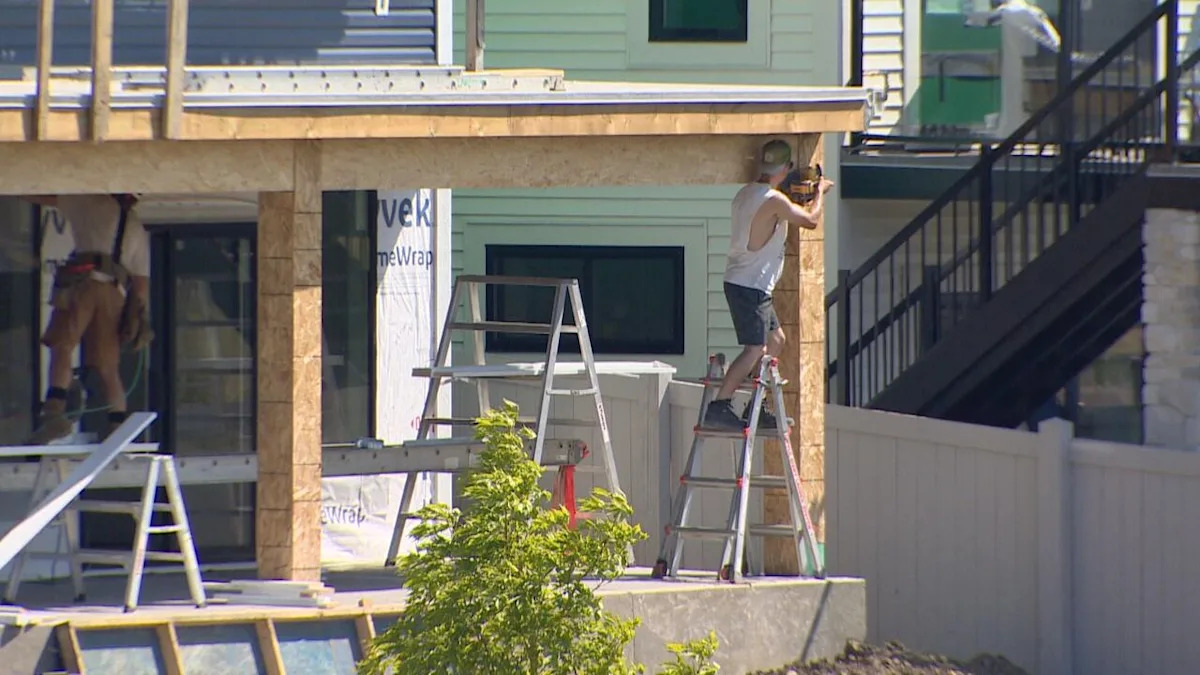Alberta had the highest drop in employment in Canada last month, after leading the nation in job growth in June, according to Statistics Canada’s latest monthly labour force data.
Accounting for job gains and losses across industries, Alberta’s net loss in July was 17,000 jobs. The province’s construction industry was hit hardest, losing 20,300 jobs.
This is a reversal from June, when Alberta led the country with a net gain of 30,000 new jobs, with 51,300 full-time jobs created and 21,300 part-time jobs lost.
Prime Minister Mark Carney addressed the growing concern over job losses Friday amid uncertainty over tariffs.
“The geographic spread in the July report is more in Western Canada, it’s in Alberta and Saskatchewan, less in the manufacturing sectors, where we will expect to see pressure,” Carney said.
This is why the federal government is “taking action in steel and lumber, and we will in autos and other areas,” he said.
Agriculture and natural resource extraction, like forestry, fishing, and energy, are among the other industries in Alberta that lost jobs.
“We’ve done a little bit better than the country as a whole, but still cold comfort if you’re one of the people in Alberta who’s unemployed, looking for work,” Rob Roach, deputy chief economist at ATB financial, told CBC News.
From tariff troubles to cuts in the temporary foreign workers program, Roach said construction and agriculture face unique challenges.
“It’s not necessarily that positions are being lost; it’s that employers are having some trouble filling those positions,” Roach said.
“It’s a case of fewer non-permanent residents, temporary workers available, as the federal government has tried to reduce the number of non-permanent residents in Canada.”
Roach said major projects have been delayed due to uncertainty, like the planned construction of chemical firm Dow’s multi-billion dollar, net-zero petrochemical project near Edmonton.
The company has said it looks to conserve cash amid unfavourable market conditions, and expects extended pressure on earnings as uncertainty from U.S. President Donald Trump’s erratic trade policies adds to macroeconomic volatility.
“While job numbers fluctuate month-to-month, we can see very positive trends in Alberta’s job growth, which is up 64,400 jobs year-over-year,” said Joseph Schow, minister of jobs, economy, trade and immigration, in a statement to CBC.
ATB found between April 2023 and April 2024, 92,000 jobs were created in Alberta, equalling a year-over-year growth rate of 3.8 per cent.
Alberta’s youth unemployment rate — tracking people aged 15 to 24 — also remains high, sitting above 20 per cent, StatsCan data shows.
“It’s even higher than normal,” Roach said.
“That’s the highest it’s been since at least 1976 not including the pandemic years.”

